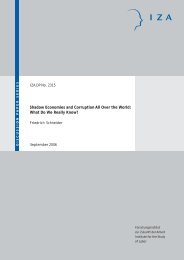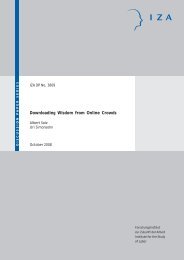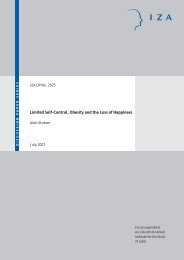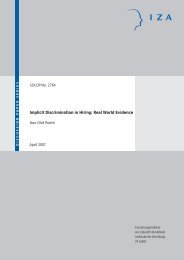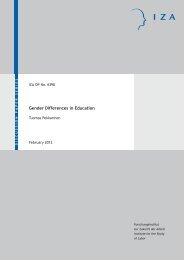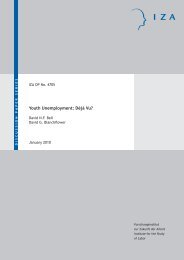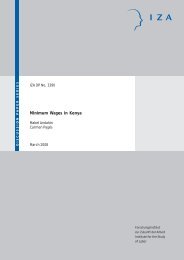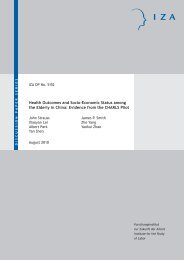The Great Recession of 2008-2009: Causes ... - Index of - IZA
The Great Recession of 2008-2009: Causes ... - Index of - IZA
The Great Recession of 2008-2009: Causes ... - Index of - IZA
- TAGS
- recession
- index
- ftp.iza.org
You also want an ePaper? Increase the reach of your titles
YUMPU automatically turns print PDFs into web optimized ePapers that Google loves.
ecession in December 2007 and is estimated to have shrunk by 2.7 per cent in <strong>2009</strong>. 23<br />
However, this contraction is smaller than most G20 countries and smaller than the average<br />
for advanced economies (-3 per cent) (Figure 4).<br />
An important theme <strong>of</strong> this paper is that, while this downturn may be the worst since World<br />
War II, the ensuing impact <strong>of</strong> the crisis on economies across the globe has been by no means<br />
the same. Indeed, diversity is a hallmark <strong>of</strong> the <strong>Great</strong> <strong>Recession</strong> <strong>of</strong> <strong>2008</strong>-<strong>2009</strong>. Since the<br />
United States went into recession at the end <strong>of</strong> 2007, most advanced economies have joined<br />
the ranks, particularly those exposed through financial and later trade channels. But, at the<br />
same time, others, particularly in the Asia region (namely China and India but also Australia),<br />
have avoided a major contraction, despite their integration with the global economy. A<br />
number <strong>of</strong> low-income countries such as Ethiopia and Uganda also continue to grow strongly<br />
despite the downturn (Figure 5).<br />
Figure 4: Economic growth across the world, real GDP growth (annual % change)<br />
Source: IMF World Economic Outlook Database October <strong>2009</strong>, data accessed February 24, 2010.<br />
23 See the IMF World Economic Outlook Database October <strong>2009</strong>.<br />
21









